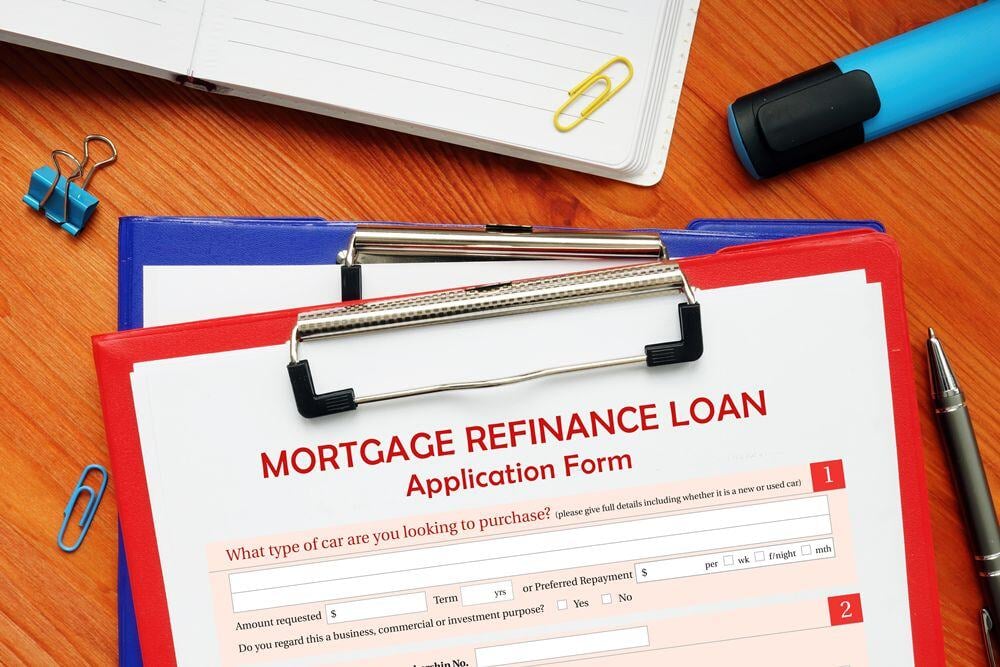Can You Refinance a Mobile Home in Florida? Here's How
January 13, 2025

Are you a mobile homeowner in Florida? Refinancing might be able to help with lowering interest rates, reducing monthly payments, or accessing your home’s equity through a cash-out refinance. Whether your mobile home is located in a mobile home park, on leased land, or affixed to a permanent foundation, understanding the process is important. Triad has a step-by-step guide to help you refinance a manufactured home in Florida.
Eligibility Requirements
Before refinancing, check whether your home meets eligibility criteria. Homes built before June 15, 1976, may not qualify for refinancing because they were constructed before the Department of Housing and Urban Development (HUD) implemented modern safety standards. For homes built after this date, lenders usually require:
- The home must be affixed to a permanent foundation.
- It should be classified as real property rather than personal property.
- Proof of ownership and compliance with HUD standards.
Determine Your Home’s Equity
The amount of equity in your home plays a big role in your refinancing options. Equity is the difference between your home’s current market value and the remaining balance on your manufactured home loan. A higher equity position might allow you to qualify for better rates and terms, or you can pursue a cash-out refinance.
If your home is located in a mobile home park or on leased land, your equity might be lower compared to other homes on owned land. However, some lenders still offer refinancing programs for homes in these situations.
Choose the Right Loan Program
Selecting the best loan program depends on your financial goals. Some homeowners refinance to reduce their interest rates and monthly payments, while others opt for a cash-out refinance so they can access funds for renovations or debt consolidation.
Loan programs have different requirements, based on whether the mobile home is classified as real property or personal property. Homes on permanent foundations are more likely to qualify for traditional mortgage refinancing, while homes on leased land may require specialized loans.
Work with a Mortgage Lender Experienced in Mobile Homes
Refinancing a manufactured home is different from refinancing a traditional site-built home, so it’s important to work with a mortgage lender that’s familiar with mobile home loans. Specialized lenders understand the unique requirements and can help you navigate criteria, rates, and loan terms.
Prepare for Closing Costs
Refinancing usually involves closing costs, which could include appraisal fees, title searches, and lender fees. In Florida, closing costs can range between 2% and 5% of the loan amount. Homeowners should budget for these expenses or explore your options to roll closing costs into the loan if possible.
Ownership & Property Classification
Homes have to meet specific criteria to be classified as real property. This includes being affixed to a permanent foundation and having a title that reflects the home as real estate rather than personal property. If your home is still classified as personal property, you might need to convert it before refinancing.
Contact your local property appraiser’s office to verify the property classification and determine if any adjustments are needed prior to applying for a refinance.
Compare Rates and Terms
Take time to shop around and compare offers from multiple lenders. Evaluate interest rates, loan terms, and fees to ensure you’re getting the best deal. Keep in mind that homes affixed to permanent foundations may qualify for more favorable rates than those on leased land.
Ask potential lenders about available programs, including FHA-insured loans or those backed by HUD, to figure out which options align with your needs.
Understand Cash-Out Refinancing
If you have significant equity, a cash-out refinance can help with funds for home improvements, debt consolidation, or other expenses. This option allows homeowners to borrow against their home’s equity while keeping competitive rates and terms.
Cash-out refinancing is especially useful for upgrading older mobile homes or preparing for future expenses, but it’s important to carefully evaluate the new loan terms to make sure they still have long-term affordability.
Finalize the Process
Once you’ve selected a lender and agreed to terms, complete the refinancing application and provide necessary documentation, such as proof of income, tax returns, and details about the home’s title and foundation status. Your lender will conduct an appraisal to confirm the home’s value and finalize the loan.
Prepare for the closing process, during which you’ll review and sign final documents. Be sure to ask questions about any unclear terms or fees before completing the transaction.
Refinancing a mobile home in Florida is a strategic way to lower your interest rates, reduce monthly payments, or tap into your home’s equity. By making sure your home meets eligibility requirements, understanding closing costs, and working with a knowledgeable lender, you can streamline the process and achieve your financial goals.
Whether your mobile home is located in a mobile home park, on leased land, or affixed to a permanent foundation, there are refinancing options to suit your needs. Consider your financial situation, compare rates and terms, and prepare your documents to make refinancing a smooth and successful experience.
